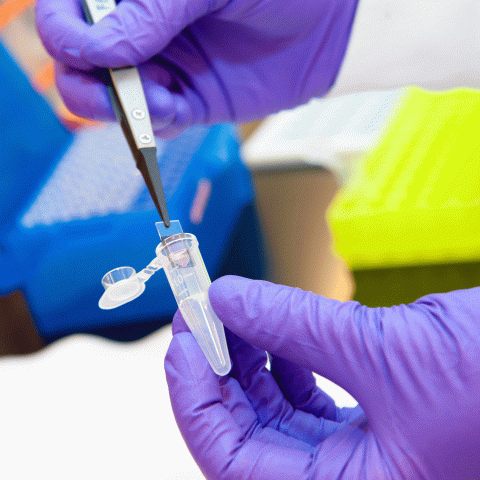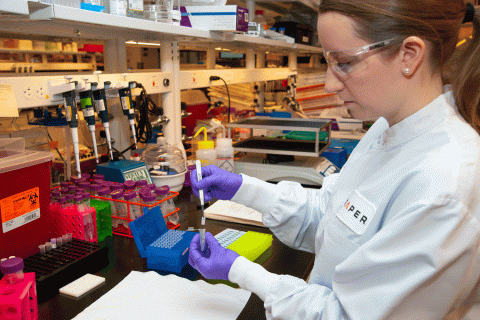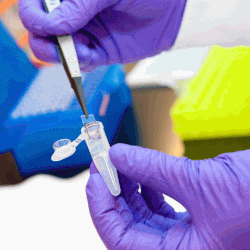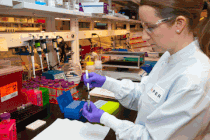IARPA, Ginkgo Bioworks and Draper Announce New Technologies to Detect Engineered DNA
CAMBRIDGE, MA—The Intelligence Advanced Research Projects Activity (IARPA), the research and development arm of the U.S. intelligence community, Ginkgo Bioworks (NYSE: DNA), the leading horizontal platform for cell programming and Draper, a nonprofit engineering innovation firm, today announced the completion of IARPA’s Finding Engineering-Linked Indicators (FELIX) program. The program was created to augment and improve current biodetection and biosurveillance capabilities. Specifically, Ginkgo has developed a suite of new computational tools and Draper has developed a new platform to help detect and identify when samples include genetically engineered biological systems. The results from the program will be presented on October 17, 2022.
Current methods for detecting signs of biological engineering are typically costly, slow and capable of detecting only a subset of all possible genetic modifications. In collaboration with IARPA, Ginkgo developed an initial set of computational tools called ENDAR (Engineered Nucleotide Detection and Ranking) that assist trained analysts to identify genetic engineering in next generation sequencing (NGS) datasets. This software aims to make it possible for scientists to detect engineered DNA at scale.
“Through their work on the FELIX program, Ginkgo and Draper have achieved two major breakthroughs for the biodetection community,” said David A. Markowitz, Program Manager at IARPA. “The ability to detect genetic engineering in complex biological samples has long been a moonshot goal, and these new capabilities are poised to transform national biosecurity efforts.”
Designed to work across a range of biological organisms that may be found in complex, multi-species environments, ENDAR tools and methods could provide early alerts to the presence of engineered organisms and help expedite appropriate responses, thereby mitigating adverse consequences.
“Ginkgo has a core belief in the promise of engineered biology—a thriving bio-based economy that delivers benefits to society, the environment, and our health. We care deeply about securing that vision by ensuring that biology is engineered and deployed responsibly,” said Jason Kelly, CEO and co-founder, Ginkgo Bioworks. “Working with IARPA, we’ve developed a fundamentally new biosecurity capability that will enhance our ability to detect, characterize, and respond to biological threats. We’re excited to explore opportunities to deploy ENDAR as an integral component of our global biosecurity platform.”
Draper’s contributions to FELIX, under its contract with IARPA, include development of a lab-based genetic test, a custom bioinformatics pipeline that contextualizes DNA sequencing data and miniaturized microarray hardware, all with the goal of characterizing otherwise-impossible-to-detect genetic engineering. Potential applications include biothreat detection, environmental monitoring and food inspection.
“At Draper, we believe that advances in gene editing technology are creating new opportunities for biosecurity,” said Laura Seaman, principal scientist and Machine Intelligence Group leader at Draper. “Under the FELIX program, we have developed a device and associated lab and computational methods that are sensitive enough to pick out an engineered organism in a complex environmental background containing millions of natural organisms—the signal-to-noise ratio is a significant improvement over current methods.”
The event will feature a panel with participants including, Catherine Marsh, IARPA director; David A. Markowitz, IARPA program manager; Joshua Dunn, head of design, Ginkgo Bioworks; Laura Seaman, principal scientist and Machine Intelligence Group leader, at Draper; and Erin Rosenberger, senior member of technical staff, Biological Microsystems Group, at Draper. During the panel, the panelists will discuss the program findings and also feature a demo of the research results.
The presentation of results from the FELIX program on October 17 will be livestreamed. To register, please visit this link, which can also be accessed Monday at 11am Eastern via the Ginkgo Bioworks channel on YouTube.
About IARPA
The Intelligence Advanced Research Projects Activity (IARPA) invests in high-risk, high-payoff research programs to tackle some of the most difficult challenges of the agencies and disciplines in the Intelligence Community. IARPA’s mission is to push the boundaries of science to develop solutions that empower the Intelligence Community to do its work better and more efficiently for national security.
About Ginkgo Bioworks
Ginkgo is building a platform to enable customers to program cells as easily as we can program computers. The company’s platform is enabling biotechnology applications across diverse markets, from food and agriculture to industrial chemicals to pharmaceuticals. Ginkgo has also actively supported a number of COVID-19 response efforts, including K-12 pooled testing, vaccine manufacturing optimization and therapeutics discovery. For more information, visit www.ginkgobioworks.com.
Released October 17, 2022




